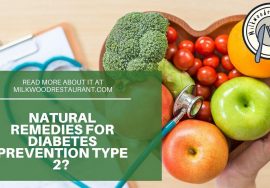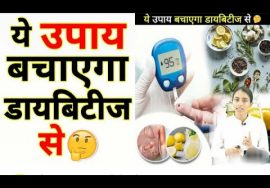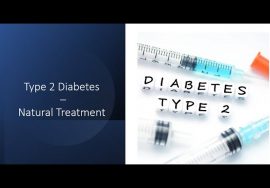Diabetic Ketoacidosis DKA Nursing | DKA Pathophysiology Treatment Management NCLEX
DKA diabetic ketoacidosis nursing management pathophysiology & treatment. DKA is a complication of diabetes mellitus and mainly affects type 1 diabetics. DKA management includes controlling hyperglycemia, ketosis, and acdidosis. Signs & Symptoms include polyuria, polydipsia, hyperglycemia greater than 300 mg/dL, Kussmaul breathing, acetone breath, and ketones in the urine. Typically DKA treatment includes: intravenous fluids, insulin therapy (IV regular insulin), and electrolyte replacement. This video details what the nurse needs to know for the NCLEX exam about diabetic ketoacidosis. I also touch on DKA vs HHS (diabetic ketoacidosis and hyperosmolar hyperglycemic nonketotic syndrome (please see the other video for more details).
Quiz on DKA:
Lecture Notes for this video:
Diabetes NCLEX Review Videos:
Subscribe:
Nursing School Supplies:
Nursing Job Search:
Visit our website RegisteredNurseRN.com for free quizzes, nursing care plans, salary information, job search, and much more:
Check out other Videos:
Popular Playlists:
"NCLEX Study Strategies":
"Fluid & Electrolytes Made So Easy":
"Nursing Skills Videos":
"Nursing School Study Tips":
"Nursing School Tips & Questions":
"Teaching Tutorials":
"Types of Nursing Specialties":
"Healthcare Salary Information":
"New Nurse Tips":
"Nursing Career Help":
"EKG Teaching Tutorials":
"Personality Types":
"Dosage & Calculations for Nurses":
"Diabetes Health Managment":












Hey Everyone! Thanks for watching. Don’t forget:
Quiz: https://www.registerednursern.com/diabetic-ketoacidosis-quiz/
Notes: https://www.registerednursern.com/diabetic-ketoacidosis-nclex-review/
More NCLEX Reviews: https://www.youtube.com/watch?v=LqOd4Sqc9Ts&list=PLQrdx7rRsKfWwTsEG3KPPQx9rWa8AqMIk
Facebook: https://www.facebook.com/RegisteredNurseRNs
Instagram: https://www.instagram.com/registerednursern_com/
Twitter: https://twitter.com/NursesRN
Do you plan to teach at some point in your career? Any nursing student would be fortunate to have you.
RegisteredNurseRN
Thank you so much Ms Sarah I passed my NCLEX with the help of your lecture series
Thanku for the quize
1:16 DKA is no insulin in the body.
2:41 Liver releases glucagon because insulin isn’t working
3:01
3:34 after Liver (seems to not work) then body breaks down Ketones.
5:50
6:13 Causes of DKA = body needs more insulin than normal :illness, stress , corticosteroids / thiazides
7:29 s/s
8:09 Ketones in blood
8:29 Metabolic acidosis . bicarb <15
9:51 n/v , abdominal pain
10:37 Ketones present in urine, tachycardia, hypotension, fatigue, confusion.
11:03 N interventions Monitor glucose and urine ketone when sick q4h
12:05 goal of DKA treatment
12:26 IV fluid
15:33 Other meds w/ IV fluid Potassium to stabilize EKG ......
also watch renal function.
I wish you were my lecture instructor! You make everything so understandable. Thank you!!!
Me too.
You are my wifes nursing teacher basically. Thank you for helping her dreams come true!
I am a doctor, so I’m not taking NCLE, but your classes really help me to study when I have some doubts. Thank you
Very awesome! I’m glad I could help. I wish you the best as you practice medicine. Thanks for viewing my videos!
I feel like God created you for people like me lol. You really are saving my grade
You make THE BEST clear understandable nursing videos
Thank you so much, God bless you and your family so much! We appreciate you so much!! All your videos are so helpful! I watch your videos after I read and before going to lecture class. When I am in lecture, everything makes sense because of YOU!! Thank you Nurse Sarah <3
Thank you so much for taking the time to write this very kind comment. I’m so glad my videos are helping you…I’m very much honored! I wish you the best in your studies! God bless 🙂
Came here for much needed, understandable info on DKA for myself.
Boy, are you good at what you do! 5 ?’s
Right to the point, very easy to understand and extremely thorough. The best explained video by far, and I’ve watched a lot.
You deserve big-time kudos! ???
Thank you again. I’m definitely subscribing! ?❤
I have an exam based on this, HHS, Addison’s, Cushing’s, SIADH, Diabetes Insipidus, acromegaly, dwarfism, HIV/AIDS, and ER care next week. Your videos are helping me clarify and understand the endocrine disorders so much better than when I walked out of lecture last week! Thank you for helping us by giving us a slice of your knowledge! It’s so helpful!
That was an awesome explanation of DKA!I haven’t read that part in my book yet and this explanation really helps. I was comparing to what I had in my nursing book, and you were spot on! I was like “whoa, she’s right!” Thank you Sarah! this is really going to help me with my finals! Best tutor ever! ^_^ *P.S* I also like how you explained the rationale for the interventions and pharmacological treatments (like why is potassium IV’s given, only regular insulin given IV, etc) b/c some of the explanations are not in my book, after you say the rationale, it helps what’s in the book make sense, thank you again! *P.S.S* I also like in the beginning how you broke down who the major key players are and what are they doing and what their roles are! That definitely helps me!
i’m purposely letting the whole advert run cos i think you guys do such great work you deserve it !
Thank you Sarah for this amazing video, you have literally saved my life. Doing my postgrad in nursing, and I must admit I keep coming back to your videos cause they are the most simplified, useful videos ever! God bless you and your family. Sending all the love and happiness from Australia
Thank you for posting these videos, They are informative and I’ve learned allot from them. I’m currently using them as prep for the NCLEX and these are my go to… Keep up the good work!
Hello Karen 🙂 I’m so happy you’re able to use my videos to help you prep for NCLEX….very awesome! I wish you the absolute best on it when you take it. Also, thank you for your kind words, and for subscribing 🙂 I appreciate it so much!
Sarah I have to agree with all the statements about what an amazing teacher you are. I come home from a confusing lecture and you put it all together for me! Thank you
I just wanted to wholeheartedly thank you for all your videos, i used them 3 yrs ago for my LVN program and currently using them for my RN program. Thank you!!!!
every time i watch your vedios i feel like i want to cry ? cause you are helping me alot .. i love you ? you are so much very good ?
No words. So GRATEFUL. Thank you for breaking things down for us
raghda fjjh I feel the same way
Wow, thank you for the kind comment! I’m so very happy my videos are helping you because I remember how rough nursing school was. THANK YOU for the videos! Best wishes in your studies!
:))
Thank you so much!! Your videos help me more than my theory lecture teacher ? I have shared your channel with all of my classmates
I have to say that I love your channel, all your videos and specially, the way you teach. Easy to understand and helpful. Consider to be a MSN if you’re not. You could be a great nursing teacher, you have the knowledge and the “gift”. Thank you for sharing your knowledge with us. Blessings. ❤️
OMG she’s got a gift from God the best teacher everrrrr ♥️♥️??
I swear